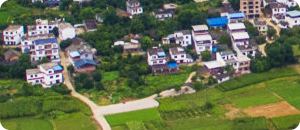An affordable, accessible, and actionable path towards SDG 6: Clean Water and Sanitation for All.
UN: "Business as usual will not achieve SDG 6." Time for some innovation. Time for Forigin.
The UN 2023 Water Conference - the first in almost 50 years - signals a new global effort in tackling the water crisis through a Water Action Agenda, highlighting the importance of water as the critical foundation upon which many of the 17 Sustainable Development Goals (SDGs) depend.
The UN SDG 6 Global Acceleration Framework, launched in 2020, is mobilizing UN agencies, governments, civil society, private sector, and other stakeholders from countries around the world to deliver fast results, at an increased scale, towards the availability and sustainable management of water and sanitation for all by 2030. The world understands, \"business as usual will not achieve SDG 6".
Un-Water, together with 30 UN entities and 40 international organizations, is committed to the Global Acceleration Framework and aims to execute a holistic, systemic and multilateral response to the water crisis.
Pain Points in Achieving SDG 6

Benefits of Decentralized Wastewater Treatment (DEWAT)
DEWAT solutions are Affordable - no need for extensive pipe networks, infrastructure, and expensive operations and maintenance. DEWAT solutions are perfect for low-to-medium population density areas or rapidly developing urban areas where pipe networks are impractical, unlocking flexible urban development for developing nations.
DEWAT solutions are Accessible - they are flexible, adaptable, and can deploy anywhere, perfectly meeting the dynamic needs of a rapidly developing area, making it much simpler for governments to conduct urban planning without worrying about permanent pipe and sewer systems.
DEWAT solutions are Actionable - they are simpler to operate, maintain, and monitor. Forigin's solutions are automated, digitally controlled, and AI-assisted, making it easier for governments in developing countries to build governance capacities for wastewater and sanitation.
Forigin's DEWAT solutions are highly stable, resistant to shocks, and adaptable to various climates and environments. 1000+ projects and millions of lives have been improved across Greater China, in vastly different climates, geographies, and urban environments.
Advantages of Decentralized Wastewater Treatment (DEWAT)

Small DEWAT units can be deployed for even the smallest social unit of a city, treating municipal wastewater at its source, instead of waiting for collection and treatment
01
Effective remedy for scattered or temporary wastewater generation caused from rapid urban development
02
Greatly improves a city's pollution-treating capacity, preventing pollutants from entering natural water bodies, which is a major pain point in rapidly growing developing economies
03
Get rid of restrictions caused by drainage, release the flexibility of urban development, and cut off the spread of biosafety risks.
04Typical application scenarios of decentralized sewage treatment
-
Hospitals
-
Industry Parks Darmers
-
Transportation Hubs
-
In-City Villages
-
Villa Zone
-
Public Toilet
-
River Pollution Control
-
Rural Households
-
Tourist Areas
-
Primary School
-
Pond
-
Village Committee
-
Backyard Farmers
-
Small Processing Plants







